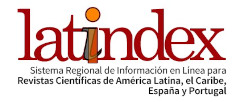POLICY NETWORKS AND DECENTRALIZATION PROCESSES: THE CASE OF FOUR REGIONS IN CHILE
Keywords:
Political networks, Decentralization, Public politics.Abstract
This work aims to know and compare the dimensions that make up the political networks and their presence in decentralization processes, through the implementation of public policies in four regions in Chile. To this end, a methodology of qualitative type was applied, which consisted in the analysis of primary and secondary sources, and mainly the performance of 44 interviews with public and private actors that participated directly in the implementation of public programs. The results showed different behaviors of the political networks analyzed in each of the regions; highlighting differences in the interaction and integration of the networks and their respective members, as well as in the management of the exchange of resources and power, when promoting public policies. The conclusions highlight the importance of the historical trajectories, routines or practices that the territories have to develop political networks within the framework of a problem or public policy at the regional level. That is, the experience of territorial actors in associative spaces, facilitates the development of political networks that can collaborate or solve a public problem, in a territorial area. Therefore, when implementing policies of socio-political decentralization, an analytical look is needed on how political networks can be an instance where the interests of different actors are combined for common solutions, from a territorial / regional perspective.Downloads
Published
2018-02-07
How to Cite
López, G. D. (2018). POLICY NETWORKS AND DECENTRALIZATION PROCESSES: THE CASE OF FOUR REGIONS IN CHILE. Revista Brasileira De Gestão E Desenvolvimento Regional, 14(1). Retrieved from https://www.rbgdr.net/revista/index.php/rbgdr/article/view/3490
Issue
Section
Artigos
License
Authors who have their papers accepted and published in the Brazilian Journal of Regional Management and Development must agree to the copyright policy CC BY https://creativecommons.org/licenses/by/4.0/.
If the article is accepted for publication, the copyright is automatically assigned to the Brazilian Journal of Regional Management and Development.
















